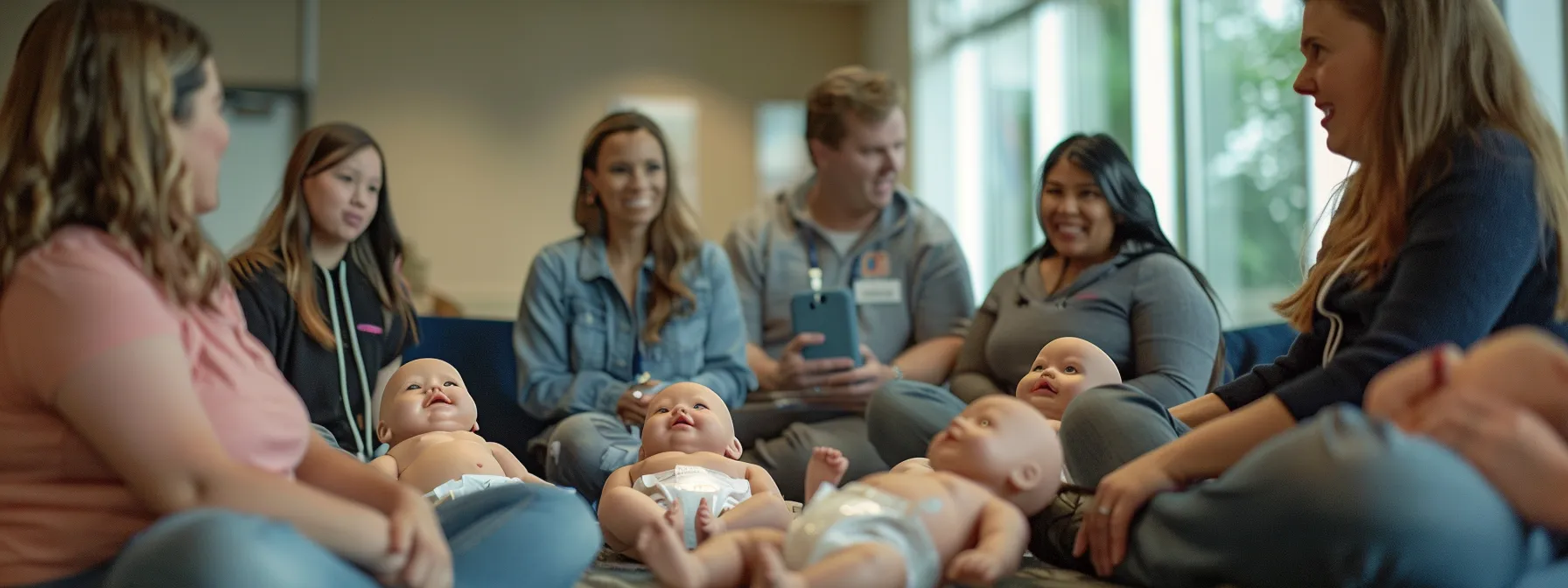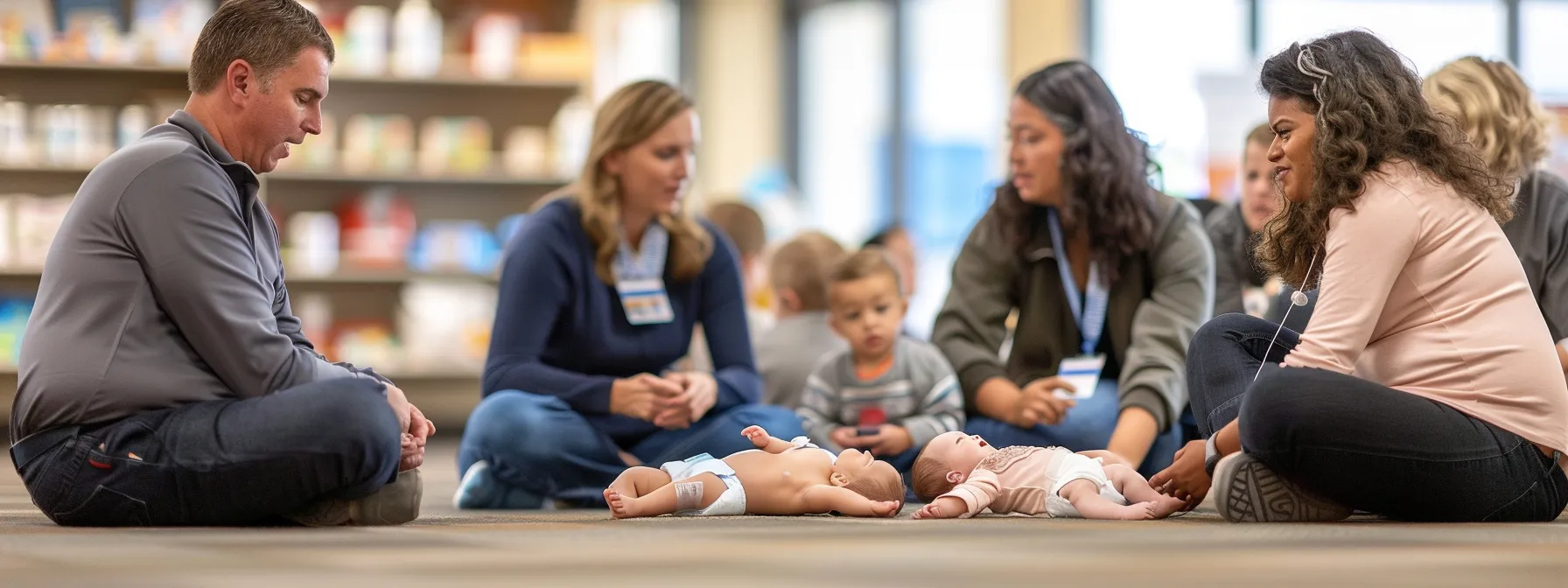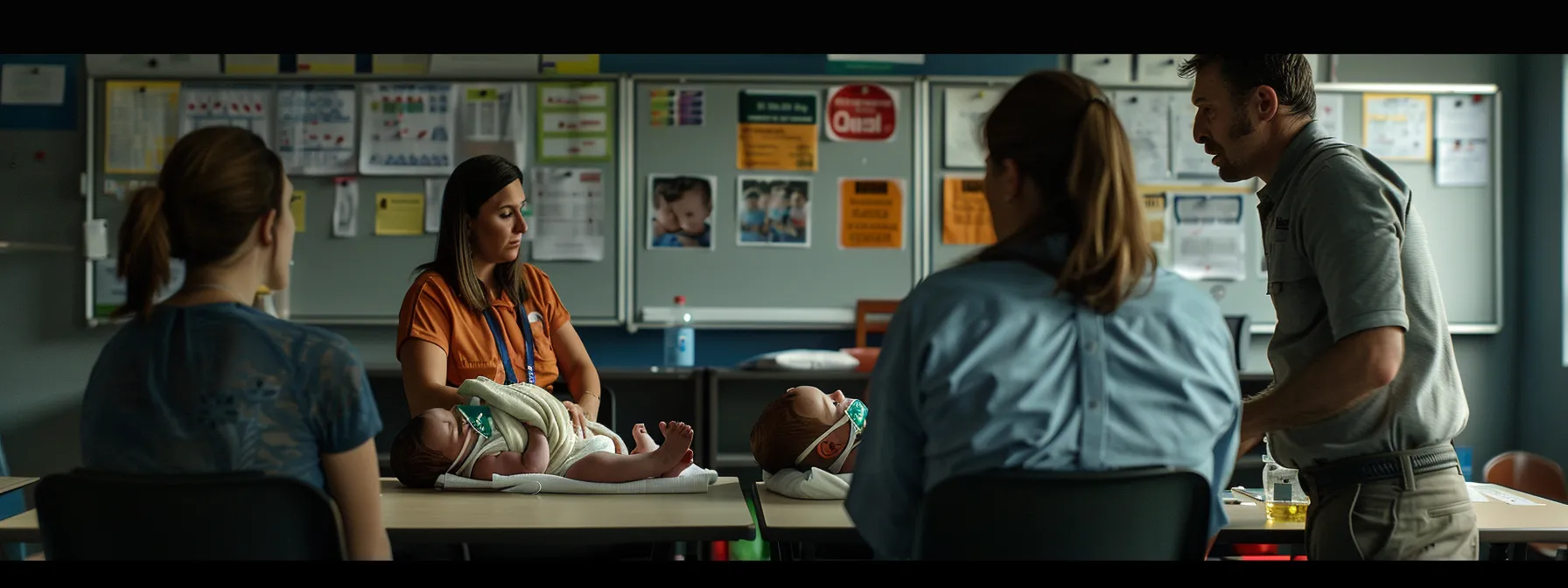Why Infant CPR Certification is Essential for New Parents: A Lifesaving Skill
Bringing a new life into the world is an exhilarating experience filled with joy, anticipation, and a good measure of anxiety. For new parents, the well-being and safety of their infant is paramount, making the knowledge of life-saving skills like CPR vital. Infant CPR, however, requires a particular set of techniques different from those used on adults or older children. Obtaining certification in infant CPR equips parents with the skills necessary to respond effectively in the event of a breathing or cardiac emergency. Infant CPR Certification Classes in Raleigh, NC by CPR Classes Near Me offer comprehensive training to help parents be prepared for any emergency.
Understanding the Importance of Infant CPR Certification for New Parents

Infant CPR certification introduces new parents to critical techniques that can make the difference between life and death in emergency situations. Since infants have smaller bodies and more delicate structures, the approach to resuscitation is decidedly different. Understanding the proper force, depth, and frequency of compressions can prevent injury while providing essential care.
When it comes to respiratory emergencies, infants are particularly vulnerable due to their underdeveloped airways. Choking is a common hazard, and knowing how to clear an infant’s airway quickly and effectively can save precious seconds in an emergency. Certification courses also provide hands-on experience, ensuring that parents can act decisively when it matters most.
Education in infant CPR goes beyond technique; it also offers a comprehensive understanding of infant anatomy and how to detect signs of distress. Recognizing subtle cues can help parents act before a situation worsens. With sudden infant death syndrome (SIDS) as a genuine concern, the capability to administer CPR promptly could be life-saving.
Certification is also crucial in ensuring that caregivers meet the standards set by health and safety organizations. By obtaining certification through a reputable program, parents can have the reassurance that their training adheres to the latest guidelines and best practices.
The Lifesaving Benefits of Knowing Infant CPR Techniques

Knowledge of infant CPR enables parents to provide immediate assistance, which is often necessary before professional medical help arrives. In many cases, prompt action can reduce the severity of injury or prevent death. CPR provides vital oxygen to the brain and other organs, offering a better chance for full recovery after an incident.
Parents trained in CPR can also serve as valuable resources in their communities. The ability to offer assistance in an emergency extends beyond one’s own family, potentially saving other lives. A community of individuals skilled in CPR creates a safer environment for all children.
There is further psychological benefit to mastering infant CPR. Parents who are confident in their ability to address an emergency report less anxiety and fear regarding their child’s safety. This peace of mind is invaluable and allows parents to enjoy the early stages of their infant’s life more fully.
Furthermore, practicing CPR regularly as part of certification maintenance keeps the skill fresh and ensures parents remain adept in their life-saving abilities. Refresher courses also update parents on any changes in recommended procedures, ensuring that their knowledge remains current and effective.
Steps to Obtain Infant CPR Certification and Renewal Requirements

To obtain infant CPR certification, parents can enroll in classes offered by recognized organizations. These classes often incorporate both classroom instruction and practical exercises. By the end of the course, participants are typically required to pass an examination to demonstrate their proficiency in infant CPR techniques.
Certification is not a one-time event; it has an expiration date to ensure that CPR practitioners remain knowledgeable about the most current practices and guidelines. Renewals usually involve taking a refresher course and retaking the certification exam. This ensures that CPR skills stay sharp and that individuals are up-to-date with any changes in protocols.
Choosing the right course is crucial. Look for programs that are accredited and follow the guidelines established by leading health organizations. It’s essential to ensure the quality of instruction and that the certification is recognized by healthcare providers and childcare services.
The mechanics of CPR certification are straightforward: sign up for a class, complete the training, and pass the test. The actual challenge lies in the commitment to stay trained and ready to act. Keeping up with renewal requirements is just as important as the initial certification, reinforcing the skills and knowledge needed to help an infant in distress.
Overall, infant CPR certification is a key aspect of responsible parenting. It arms individuals with the knowledge necessary to make a critical difference in an emergency, fostering a sense of security and competence. Whether it’s for peace of mind or preparation for the unexpected, the value of these life-saving skills is immeasurable.
